View current news articles, commentary, videos and more having an impact on Jewish culture, politics and religion at Rabbi Silverman's Sites to See
A colleague of mine, Rabbi Mark Greenspan, shares with us one of the great Pesach stories. This one is about Chaim, a Jewish man from long ago, who was good friends with the monarch of a small kingdom. The king loved Chaim, and Chaim loved the king. More importantly, the king trusted Chaim and knew he was a talented and capable banker, so he decided to make Chaim the royal treasurer. Unfortunately, the other advisors resented having a Jew placed in a position of such high authority, so they went to the king with an ultimatum: either Chaim had to convert or they would resign.
Reluctantly, the king told Chaim his dilemma. Being a good friend and realizing how fortunate he was to be the royal treasurer, Chaim told his family that they had to convert if he was to hold on to his position.
Weeks turned into months after the conversion, and Chaim’s conscience weighed on him. How could he have deserted his ancestral faith so easily? Finally, one day, Chaim burst into the royal throne room and told his friend, “My king, you know how I feel about you and how much I love serving you. But I cannot live with myself if I cannot be a Jew. I cannot be treasurer if I must remain Christian!”
Upon hearing this, the king said to Chaim, “My dear friend, why didn’t you tell me how strongly you felt about this. If Judaism is so important to you, I will allow you and your family to return to your ancient faith.” Chaim immediately rushed home to tell his wife the good news. He said, “Shprinze, I have wonderful news. The king said we can return to Judaism immediately.” To which Shprinze responded, “You idiot - couldn’t you wait until after Pesach to ask?” “Oy,” says Chaim, “
goyeshe kopf!”
Now it's pretty clear that this is the immediate thought of many who take Pesach seriously. We clean and we scrub and roll up rugs and wash down counters and vacuum in every nook and cranny. We kasher and clean and spend big money (sometimes twice that!) to make a seder and to have the special exorbitant pesachdik food. Wives and their husbands cook and clean and wash baseboards and cupboards and juggle for a week between chametz and Pesach cooking. We throw away our chametz food or squirrel it away and sell it through the rabbi. It is sometimes overwhelming when you, in addition, throw in the research and brainstorming about an interesting angle or activities for the seders. And then of course there is shul. Purim is intense, building a sukkah isn’t easy, and Rosh Hashanah and Yom Kippur are at times challenging, but when you compare those holidays to the time-intensive frantic march from Purim to being ready for Pesach, they are walks in the park. So really, who needs Pesach? Wouldn’t life be a peach and just fine without it?
Well a lot of people needed it and continue to need it. Revolutionary Americans saw themselves as the Egyptian Hebrews in slavery as they readied their muskets against the British. One of the first seals of the nation was a picture of Moses leading the Hebrews out of slavery. The African slaves of the South and discriminated masses in the civil rights era needed Pesach, for the negro spiritual, “Go Down Moses,” never left their lips, giving them resolve and inspiration. The men, women and children of Chad, of Nigeria, and of Darfur need it, remembering that God, too, may be readying to rescue them from their enslavements of rape and pillage. The Syrian opposition of Bashar al Assad surely identify themselves enslaved by a dictator, as do the masses of Venezuela. And surely the young women who are trafficked in Thailand, in Russia and elsewhere–the new manifestation of slavery that is a blight and stain to any nation that tolerates it–certainly need the hope that they can some day be released, someday benefit from saviors who will free them. And surely those one-in-six in America and one-in-five in the State of Israel, enslaved by hunger–they too can gain inspiration and hope through it.
Well we need it too. We need the reminder each year that Pesach did not merely release the Hebrews to radical freedom; it rescued them to become a kingdom of priests and a holy nation; to be both a Peoplehood bound by rituals and belief as well as a People tied to an ancestral homeland. It released them so that God could make them His people, who bring the message of a caring, loving, universal God, and a message of empathy to all those that are oppressed and suffering.
Sometimes it seems that preparing for Pesach is enslaving. When you feel that, don't despair. Take a rest but also take heart! Consider that its effect is to heighten the moment when Pesach comes, a time in which we, as a free and released people, have made our way from radical liberation to the attachment of ourselves to God's mitzvoth, as we count the omer to Shavuoth and to Torah. Consider how Passover has given hope and faith to so many groups oppressed around the world. Consider the empathy it gives us for others who are mired in far worse enslavement and back-breaking circumstance.
In every generation, each of us must consider ourselves as having come out of Egypt for so many reasons. Maybe there is a method to this madness after all. May we keep that in mind and in heart as we prepare our homes and our tables this year.
A Chag Kasher ve Sameah – A sisen and meaningful Pesach!
